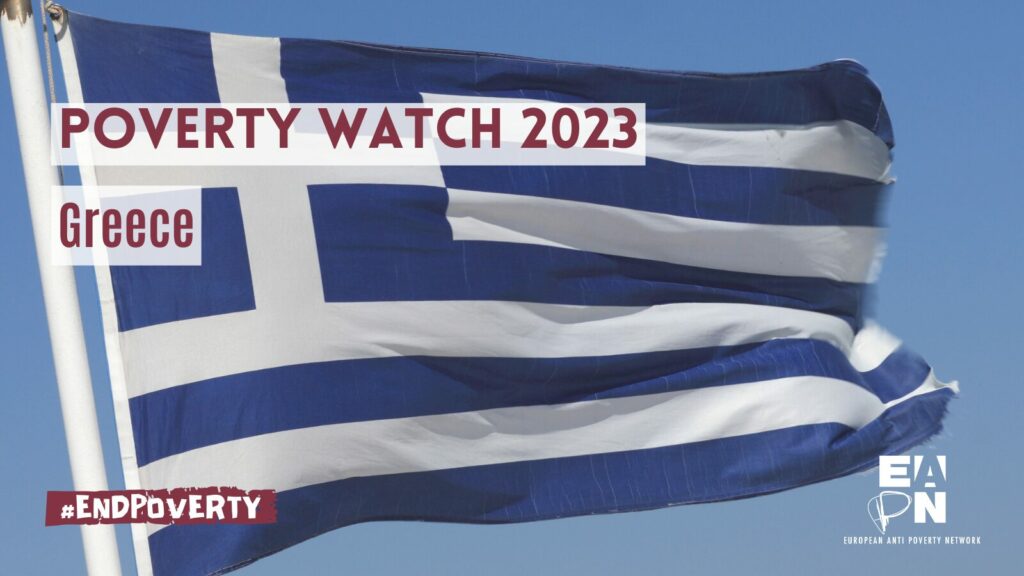
The year 2023 marks the end of the COVID-19 alert; leaving behind serious global health, social, and economic consequences. These consequences, combined with the war in Ukraine, the energy crisis, the climate of insecurity, ongoing climate change, the rise or consolidation of the far-right, and extensive natural disasters, form an explosive mixture that fuels poverty and possibly a new food crisis. In this pervasive atmosphere, Greece finds itself in a situation where the lowest 50% of the population has, on average, more debt than wealth, according to the World Inequality Report 2022.
The shares of people at risk of poverty or social exclusion varied across the EU countries in 2022. According to Eurostat, the highest values were reported in Romania (34%), Bulgaria (32%), Greece and Spain (both 26%).
Fiscal justice
In the 2023 Poverty Watch Report EAPN Greece particularly addresses the issue of fiscal justice. The questions that concern them have to do with the reforms announced or implemented by the Greek government; concerning the underfunding or the refunding of state welfare and social policies, the possible changes made to income flows (income collection), the role played by EU structural funds, the tax reforms for the current year 2022-2023, what happens with the funding of green and/or digital transitions, who were the target groups/recipients of the reforms, what are the positive aspects and what are the gaps, …
Finally, what are their recommendations to ensure adequate state welfare?
